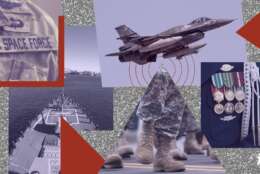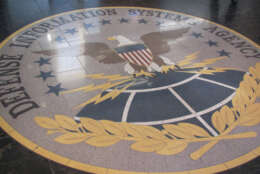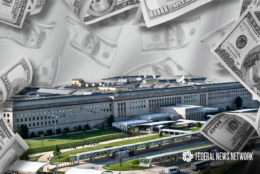Defense
-
Adoption of DoD's new software acquisition pathway has been slow, but officials are looking for ways to jumpstart its use.
May 10, 2024 -
The Pentagon's study recommends moving all Guard space units into the Space Force. But state governors, lawmakers and Guard leaders are pushing against it.
May 09, 2024 -
A new agreement between the Defense and State Departments aims to help military spouses living with service members overseas to get the ok to work remotely.
May 09, 2024 -
After a multi-year effort, Defense Department health and tech officials got a new electronic health record system completed.
May 08, 2024 -
"I'm the biggest fan of software and going to continuous development for software. But you cannot forget the hardware," said William LaPlante.
May 07, 2024 -
The Navy runs on ships and people. They need fuel, ammo, food and tons of other stuff. Now ships are on duty around the world, some are on heightened alert.
May 07, 2024 -
SBA’s Office of Advocacy is calling on the Pentagon to make sure small businesses don’t fall behind as it rolls out the CMMC requirements.
May 06, 2024 -
“Harvesting of National Guard resources to the regular components is a solution looking for a problem,” said Col. Michael Griesbaum.
May 03, 2024 -
An Army financial counselor will spend years in prison after his conviction on defrauding Gold Star Families. Military families should use care with adviser.
May 03, 2024 -
Air Force Research Laboratory (AFRL) unit has finished building what it calls a diagnostic system to evaluate the performance of high energy lasers.
May 03, 2024 -
The Defense Information Systems Agency details four strategic imperatives, six operational imperatives and eight goals.
May 03, 2024 -
“There's nothing magic about construction for the Marine Corps. The challenge is the program budget process,” said Rear Adm. Dean VanderLey.
May 03, 2024 -
Citing low recruitment rates and readiness challenges, a coalition of health groups is urging the the Defense Department to do more about obesity.
May 02, 2024 -
The Marine Corps recently completed its service-wide barracks inspection. Now it can finally get after the problems that have plagued barracks for decades.
May 01, 2024 -
Artificial intelligence, space technology projects and integrated sensing and cyber efforts make up the majority of the Pentagon's S&T budget request.
April 30, 2024
















